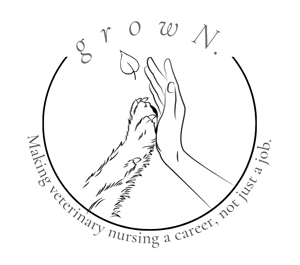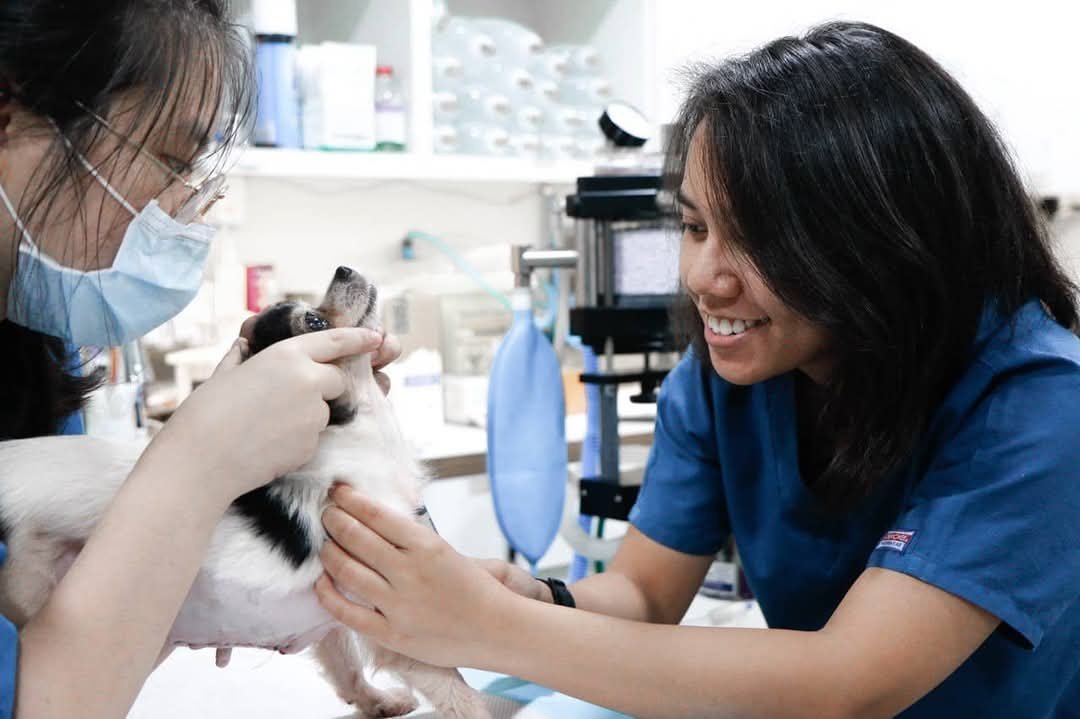With Nur Atika Ramadzan (Veterinary Technician)
Like any career, veterinary nursing comes with its highs and challenges. However, for a profession that demands immense emotional resilience and dedication, it’s easy to see why some might question its long-term sustainability.
That said, with the right support system and guidance, this career can be incredibly rewarding and fulfilling, offering a unique opportunity to make a meaningful impact on the lives of animals and their owners.
In this feature, we had the privilege of speaking with Nur Atika Ramadzan, a seasoned veterinary technician with 8 years of experience in the industry. Here’s what she shared about her journey, insights, and advice for those considering this path.
What made you want to become a vet tech? And what has made you want to stay in the field as long as you have?
Growing up surrounded by animals at a young age, made me want to pursue a career in
the veterinary field. I used to watch the late Steve Irwin religiously on television growing
up too and that further stemmed my interest in the field. The initial dream was to be a
wildlife veterinarian, but I soon came to realise that I enjoyed interacting with animals
more than talking to people. That itself made me more keen to undertake a role of a
veterinary technician, where I am more exposed to the back end work of a veterinary
setting and allowing myself to be more involved in the treatment processes of my
patients.
The veterinary field itself is a challenging place to be in and I was constantly learning
new things ; there were no two cases that were exactly the same. This made the job
utterly thrilling for me as I would not know how my day would turn out at work, even
when the cases seem alike. As I grew to love the work I do, I realised I enjoyed the other
aspects of the job – training new technicians and managing the business. The veterinary
field is also constantly evolving and it is almost like an adventure for.
Can you share your educational background and any certifications you’ve earned in this field?
I obtained my Diploma in Veterinary Technology from Temasek Polytechnic in 2014
before completing my Bachelor’s in Veterinary Technology from University of
Queensland in 2016. I am also currently a Fear Free accredited veterinary
para-professional. I am looking to pursue my Diploma in Business Management in the
near future.
What was your first job as a vet tech, and how has your role evolved since then?
Upon graduation from tertiary education, I took a keen interest in surgery and
anesthesia. I started off as a surgical vet technician at a small, busy GP clinic, after
completing an internship with them. I rotated between their vet hospital and the clinic as
a surgical technician while undertaking a gap year from my studies. Post graduation from
university, I took up the role as a junior veterinary technician at Barkway Pet Health. I
was subsequently promoted to head veterinary technician. I am almost 8 years in with
the team now and managing the practice as I go. I do adjunct lecturing during my free
time for the Diploma in Veterinary Technology students too.
Are there specific experiences or milestones in your career that stand out as pivotal moments?
One such milestone was when I was featured in the local Malay newspaper, Berita
Harian, where I spoke of the hardships of being a vet tech in a niche field of study and
how I came to love the job.
https://www.beritaharian.sg/singapura/kerjaya-minat-dari-kecil-dorong-siswazah-muda-ceburi-bi
dang-veterinar
Another milestone was when I was nominated for the Singapore Vet Technician/Nurses
Award. Although I only managed to reach the finalist stage, I was humbled and truly
grateful that my work was appreciated by my colleagues, peers, students and
recognised by people within the veterinary field. I aspire to inspire those around me and
that moment made me realise I already won even when I did not receive the award itself.
How do you handle emotionally challenging situations, such as dealing with critically ill animals or distressed pet owners?
Handling such situations takes a great deal of empathy and emotional resilience. Active
communication and compassion to the clients go a long way in understanding their
emotional needs. As long as we are able to provide that form of support and service, we
would essentially provide the best care possible even in the most difficult situations.
We also need to bear in mind our own emotional well-being in such situations and I find
it helpful to decompress after a hard day at work by either engaging myself in things I
love doing or surrounding myself with loved ones so as not to be affected by these
situations for too long while in turn remaining professional.
What changes have you seen in the veterinary field over the course of your career?
With clients being more informed through the years, there is increased expectations and
demand for better quality of healthcare within the industry. There also has been a need
for more recognition for vet technicians, especially so in Singapore.
What trends or challenges do you foresee in the veterinary field, and how can aspiring vet techs prepare for them?
I foresee a decline in those who wish to pursue in the veterinary field as vet technicians,
citing loss of interest and mental health fatigue.
The veterinary field is adapting rapidly, and aspiring vet techs must be proactive in
preparing for these challenges and trends. By staying informed about technological
advancements, honing their skill sets, and embracing new models of care, aspiring vet
techs can not only meet the evolving demands of the profession but also thrive in a
dynamic, rewarding field.
Do you mentor or train junior staff? What advice do you often give them?
Yes, I do. I not only mentor and train junior staff but also provide educational advice to
vet and vet students across Australia and recently the UK, who are keen to pursue a
career in this field.
The main advice is to keep going and remember why you started in the first place. This
is to ensure that they are completely invested in what they are doing. Given the rigorous
pressure in this field, not many will sustain in the industry for long. If they are truly
passionate and love what they are doing, it really does go a long way.
What do you think are the most important qualities or skills for a veterinary technician to succeed?
The drive and thirst for continuous learning and self-improvement is a good trait to have.
Being in the field for too long can make you feel a little stagnant and make you not want
to continue in it, so having a direction and goal for the future keeps the passion alive.
Are there opportunities for career advancement or specialisation within the veterinary technician field?
There are multiple areas for career advancements and specialisations in the field. It boils
down to where your interests lie.
With career advancement in a general practice point of view, you may be looking at
being a senior/head veterinary technician and practice manager as consideration. For
more advanced practices, you may even consider being a head of a particular
department or being involved in the veterinary operational side of the business.
Opportunities in being a veterinary technician specialist (VTS) may be limited in
Singapore but can be attained through overseas channels with wide ranges in type of
specialisations.

